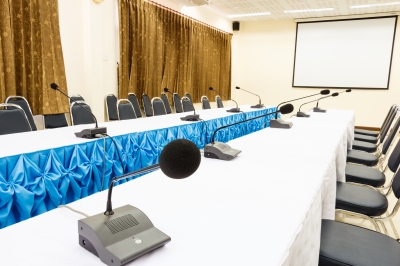Last year, the U.S.
Environmental Protection Agency announced that each state must revise its air regulations to more comprehensively address emissions from factories, mills, power-generating stations, and similar facilities. In Florida, the rulemaking process to implement the EPA’s direction is about to begin. Many industrial and utility sites have air emissions covered by the
Clean Air Act and these facilities have numeric limits on the amount of certain pollutants, such as sulfur oxides or SOx, that can be emitted during normal operation. In recognition of the fact that these limits are not realistic during relatively brief periods when the facility is starting up, shutting down or has equipment malfunctioning, most states allow for limited emissions exceeding the normal limits during these periods. In June 2011, the Sierra Club filed a petition with the EPA requesting that the EPA use its authority to require states to revise plans for implementing the Clean Air Act – called State Implementation Plans (SIPs) – to direct states to remove these so-called exemptions, arguing that the law interpreting the Clean Air Act required emission limits all the time, with no exceptions for periods of startup, shutdown, or malfunction (SSM). The EPA eventually agreed and issued a “SIP call” in May 2015. In the SIP call, the EPA required states to change regulations allowing leniency of emission limits during periods of SSM. Although Florida’s current rule is not a complete abandonment of limits during SSM, by requiring facilities to limit the length of these periods and still meet some other (albeit higher) limits, the EPA included Florida within its SIP call. Florida Attorney General Pam Bondi led a coalition of 17 states in challenging the rule in federal court. The rule remains in effect during this litigation and Florida’s agency for implementing the Clean Air Act – the Florida Department of Environmental Protection (FDEP) – has been given until November to submit a revised SIP to the EPA.

Under Florida’s laws for rulemaking, the FDEP must conduct a public process with opportunities for comment, and the timing of that process requires the FDEP to begin soon. Florida, which has some of the cleanest air in the country, is not expected to see much, if any, environmental benefit from the new rule. Florida is already in compliance with the National Ambient Air Quality Standards that its SIP is designed to meet. Nonetheless, the new rules will require some form of new emission limitation, either numeric or in the nature of a work practice (e.g., the use of certain types of fuel during periods of startup and shutdown), that will apply during SSM. Failure to comply with the new limitation will create the possibility of state or federal enforcement or third-party litigation for noncompliance. Businesses with Clean Air Act permits should be monitoring the new FDEP rulemaking process to ensure that the numeric limits or work practices are realistic and do not unnecessarily increase the risk of enforcement or third-party litigation.
* * *

Gunster attorney
Greg Munson is the former general counsel and deputy secretary for water policy at the Florida Department of Environmental Protection. Since 2013, he has been a shareholder practicing
environmental law and
government affairs at Gunster, in its Tallahassee office.
Image courtesy of stockdevil via FreeDigitalPhotos.net Under Florida’s laws for rulemaking, the FDEP must conduct a public process with opportunities for comment, and the timing of that process requires the FDEP to begin soon. Florida, which has some of the cleanest air in the country, is not expected to see much, if any, environmental benefit from the new rule. Florida is already in compliance with the National Ambient Air Quality Standards that its SIP is designed to meet. Nonetheless, the new rules will require some form of new emission limitation, either numeric or in the nature of a work practice (e.g., the use of certain types of fuel during periods of startup and shutdown), that will apply during SSM. Failure to comply with the new limitation will create the possibility of state or federal enforcement or third-party litigation for noncompliance. Businesses with Clean Air Act permits should be monitoring the new FDEP rulemaking process to ensure that the numeric limits or work practices are realistic and do not unnecessarily increase the risk of enforcement or third-party litigation.
Under Florida’s laws for rulemaking, the FDEP must conduct a public process with opportunities for comment, and the timing of that process requires the FDEP to begin soon. Florida, which has some of the cleanest air in the country, is not expected to see much, if any, environmental benefit from the new rule. Florida is already in compliance with the National Ambient Air Quality Standards that its SIP is designed to meet. Nonetheless, the new rules will require some form of new emission limitation, either numeric or in the nature of a work practice (e.g., the use of certain types of fuel during periods of startup and shutdown), that will apply during SSM. Failure to comply with the new limitation will create the possibility of state or federal enforcement or third-party litigation for noncompliance. Businesses with Clean Air Act permits should be monitoring the new FDEP rulemaking process to ensure that the numeric limits or work practices are realistic and do not unnecessarily increase the risk of enforcement or third-party litigation.
 Gunster attorney Greg Munson is the former general counsel and deputy secretary for water policy at the Florida Department of Environmental Protection. Since 2013, he has been a shareholder practicing environmental law and government affairs at Gunster, in its Tallahassee office. Image courtesy of stockdevil via FreeDigitalPhotos.net
Gunster attorney Greg Munson is the former general counsel and deputy secretary for water policy at the Florida Department of Environmental Protection. Since 2013, he has been a shareholder practicing environmental law and government affairs at Gunster, in its Tallahassee office. Image courtesy of stockdevil via FreeDigitalPhotos.net







